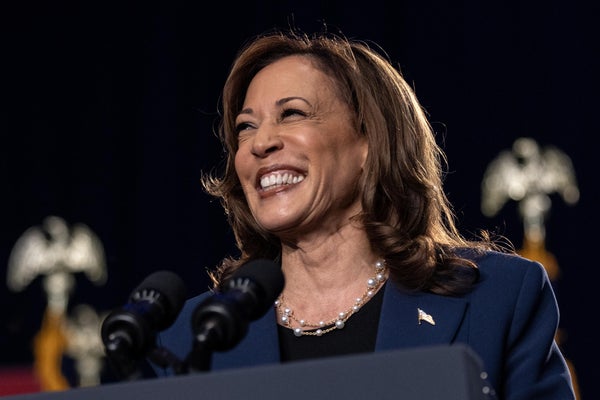NEWS
“Beyoncé Greenlights Kamala Harris to Empower Campaign with ‘Freedom'”

Just call Vice President Kamala Harris the mixtape candidate: First, Charli XCX declared that she “is brat,” mobilizing her neon green-clad sea of Gen Z, voting-age fans for the presumptive Democratic Party nominee. Now, Beyoncé has reportedly given her personal blessing for Harris to use one of her tracks on the campaign trail
Harris, who announced her candidacy Sunday shortly after President Joe Biden ceased his reelection efforts, made her first official visit to the newly re-named Kamala HQ, her campaign headquarters, on Monday. Her entrance was soundtracked by Beyoncé’s track “Freedom,” with guest artist Kendrick Lamar.
The anthem features lyrics such as “I break chains all by myself / Won’t let my freedom rot in hell / Hey! I’ma keep running cause a winner don’t quit on themselves.” Sources confirmed to CNN that Harris’s team reached out to Beyoncé’s team for permission to use the song, and the 32-time Grammy winner (the most of any artist in history) immediately gave the go-ahead
Artists can discourage candidates from using their songs at campaign events, even if they are legally allowed to. ASCAP, a music licensing nonprofit, can extend blanket licenses for campaigns to use any song in their repertory, according to an FAQ on the topic. “However, ASCAP members may ask us to exclude some or all of their works from a particular political campaign’s license,” the organization said. “In that event, ASCAP will notify the campaign of the excluded works.”
The list of artists who have asked Trump not to hit play on their tracks at events over the years includes Adele, Bruce Springsteen, and more, enough to warrant its own Wikipedia page.
Northeastern University media and law professor Alexandra Roberts told the school’s student newspaper that waging a publicity campaign or threatening legal action can be an easier way to get an undesirable candidate to hit pause without having to go through a copyright lawsuit.
“You don’t always need a winnable case,” Roberts said. “You don’t always need to show copyright infringement or false endorsement. Sometimes the threat of it can accomplish what you want.” see












